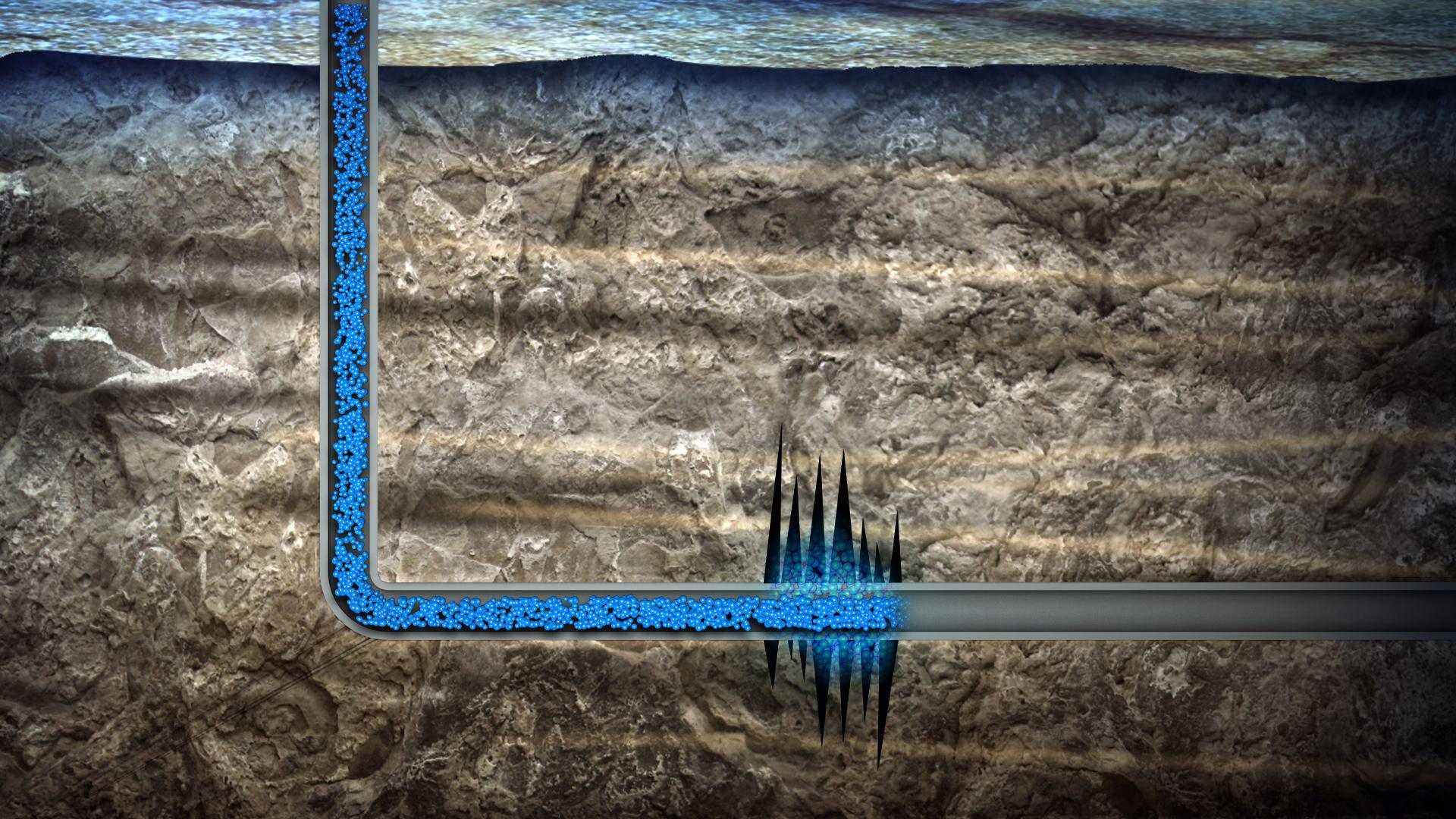Survey suggests support for fracking in UK falls below 50%
- Published
- comments
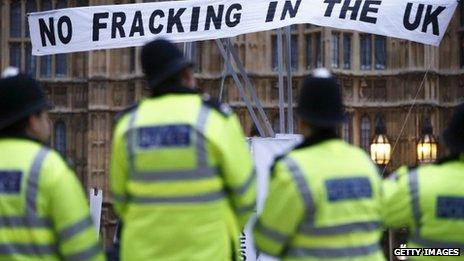
Protests in 2013 have been cited as the moment public opinion about fracking changed
The number of people in favour of fracking for shale gas in the UK has fallen below 50%, a new poll suggests.
Just 49.8% were in favour of shale gas extraction when researchers from the University of Nottingham asked 3,657 people earlier this month.
This is the lowest number in support of fracking since the university started its poll on the issue in 2012.
The latest results found 31.4% were against fracking, while 18.4% were undecided.
"The May 2014 survey confirms that the turn against fracking for shale gas in the UK has deepened," says the report.
And it cites the anti-fracking protests which took place in the village of Balcombe in West Sussex in 2013 as a tipping point when the tide of public opinion towards shale gas extraction began to shift.
Since those protests the number of people against fracking has been steadily rising, it says.
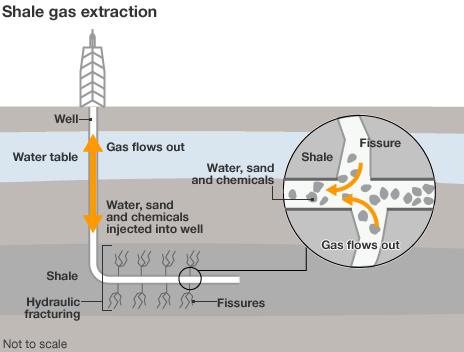
BBC environment analyst Roger Harrabin said this was bad news for the government, given that it wanted to encourage shale gas as an alternative to imported gas from Russia.
He said ministers would not be delighted to learn that a second anti-fracking camp was planned for this summer.
Tory peer Lord Howell of Guildford - who apologised last year after saying that fracking should take place in the North East because it was "desolate" - recently spoke about the issue again, and said the Conservative Party could lose votes by pursuing plans to frack.
But the poll, carried out by YouGov on behalf of Nottingham University, suggested that this may not happen as it found support for fracking higher among Tory and UKIP voters - around 68% - while Labour and Lib Dem supporters were generally much less in favour.
The survey also found that an increasing number of people were better educated about the technology and processes behind shale gas extraction.
Older people were found to be more accepting of fracking than younger people. The poll found more than 50% of older people approved of the technology, while among those under 25, as many were now against shale gas as were for it.
The professor organizing the survey, Sarah O'Hara, said the fall in support from under-55s had been so sharp that at first she did not believe the results.
'Swung opinion'
"This is really surprising," she told BBC News.
"Previously the polls had shown a steady trend towards greater understanding of the technology and greater acceptance, but this has gone into reverse and now support is the lowest overall since we started the poll.
"It's clear from the trend in polling that it's the protests in Balcombe that have swung opinion."
According to the survey summary, the prospect of contamination of drinking water had been a "key issue" highlighted by protesters.
It said the negative rating for shale gas on water contamination has been maintained and currently stands at -16.6%.
The report said trends suggest the "turn against fracking" seen after the Balcombe protests last year was not a "blip" and represent "an increasing sense of unease" with the technology's environmental implications.
Fracking is the process of drilling down into the earth before a high-pressure water mixture is directed at the rock to release the gas inside. Water, sand and chemicals are injected into the rock at high pressure which allows the gas to flow out to the head of the well.
Dr Tina Hunter, Director of the Centre for International Minerals and Energy Law at the University of Queensland, warned a shale conference in London on Monday that rushing ahead with fracking had caused huge social and environmental problems in Australia.
She said: "Don't go into fracking fast. Australia is a big, big country. A lot of it is desert, yet we've still had huge problems there by rushing ahead before legislation and public opinion were ready."
Dr Hunter applauded the UK government's more cautious approach, and suggested that the UK mandate "fingerprint" tests on the water flowing back from the fracking process in any well. Chemical analysis would establish the exact chemical signature of the well and provide evidence in any future case of water pollution.
An official from the energy department DECC told BBC News this idea was worth examination.
Ross Gurdin, energy policy adviser for the employers' body the CBI, urged a prudent development of shale gas reserves in the UK.
The CBI did not expect any major drop in gas prices in the short to medium term thanks to shale gas, he said, but was keen to attract new tax revenues to the Exchequer and create new feedstock for chemical manufacturers which had previously relied on feedstock from North Sea gas.
An announcement from the British Geological Survey of the reserves under the Weald of the south of England is due soon.
- Published24 February 2014
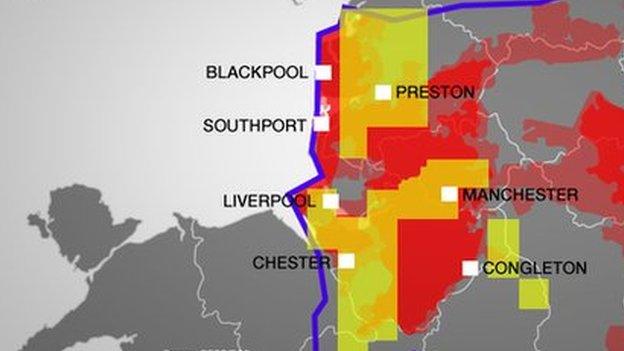
- Published8 May 2014
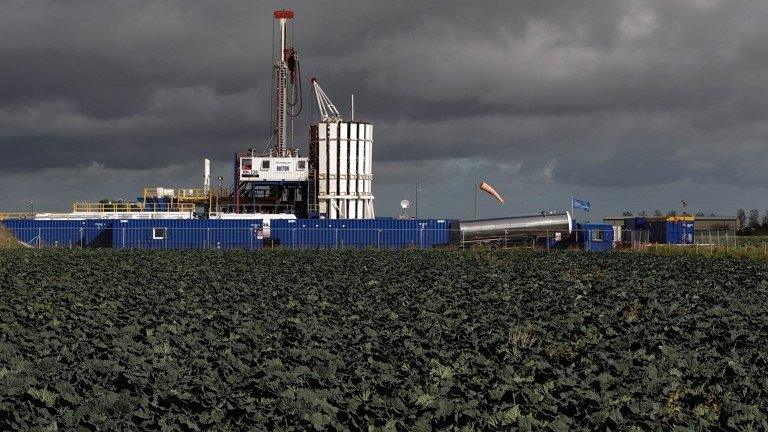
- Published16 July 2013
